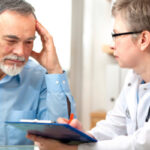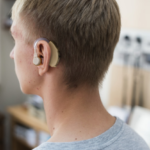Occurring in more than 795,000 people in the US every year, strokes are unfortunately extremely common. Unfortunately, 130,000 people die from them every year, meaning the survival rate is quite high; however, if you are one of the 660,000 people in the process of recovering from a stroke, you will no doubt be aware of the issues surrounding rehabilitation.
The ozone therapy for stroke patients is a crucial component and helps those who have suffered from stroke, recover movement and help get their bodies back on track. However, with centers all over the country dedicated to getting people on the road to recovery, there are also things that patients can do to maximize their chances of a full recovery, which are discussed below.
1. Seek urgent care following a stroke
If you are displaying symptoms of a stroke, it is absolutely crucial that you seek emergency care as soon as possible. Patients who arrive at the emergency department within 3 hours of their symptoms suffer less with disabilities in the months following.
2. Ensure you have your medical information to hand
If you have suffered from a stroke, if you suffer from another, it is always a good idea to keep a list of your medical conditions and any medication you are taking on your person. This is because a stroke can affect communication, making it difficult for patients to pass this information on to their doctors, and some treatments for strokes can’t be given with other medications.
3. Eat well
When recovering from a stroke, a healthy and consistent diet is a key component to your rehabilitation.
Some patients may struggle with weakness or incoordination of the swallowing muscles, which can make eating and drinking extremely difficult. Care teams recommend eating softer foods and thicker liquids as these swallowing problems could lead to pneumonia. Liquid thickeners such as those sold by SimplyThick are commonly recommended as they can make liquids easier to swallow for people struggling after a stroke.
4. Exercise within your limits
Physical activity can go a long way for patients who are recovering from a stroke; however, the limits of that physical activity have to be closely monitored and should be prescribed by a physical or occupational therapist.
5. Limit your stress as much as possible
This is easier said than done, but patients recovering from a stroke should try to keep their lives as stress-free as possible. By living a much more balanced lifestyle and without undue psychological strain, patients are likely to see better outcomes in their recovery.
6. Stick to exercise programs
When stroke patients leave rehabilitation centers, they are usually given plans to follow at home. These will include exercises to do to improve the speed of recovery and lessen the extent of disabling issues following the stroke.
7. Seek Help
There will be some days when you feel like you are finding it difficult to cope with your condition, whether mentally or physically. Don’t be afraid to reach out to psychologists or psychiatrists if you are struggling with your mental health, and they may recommend therapy or medication.










